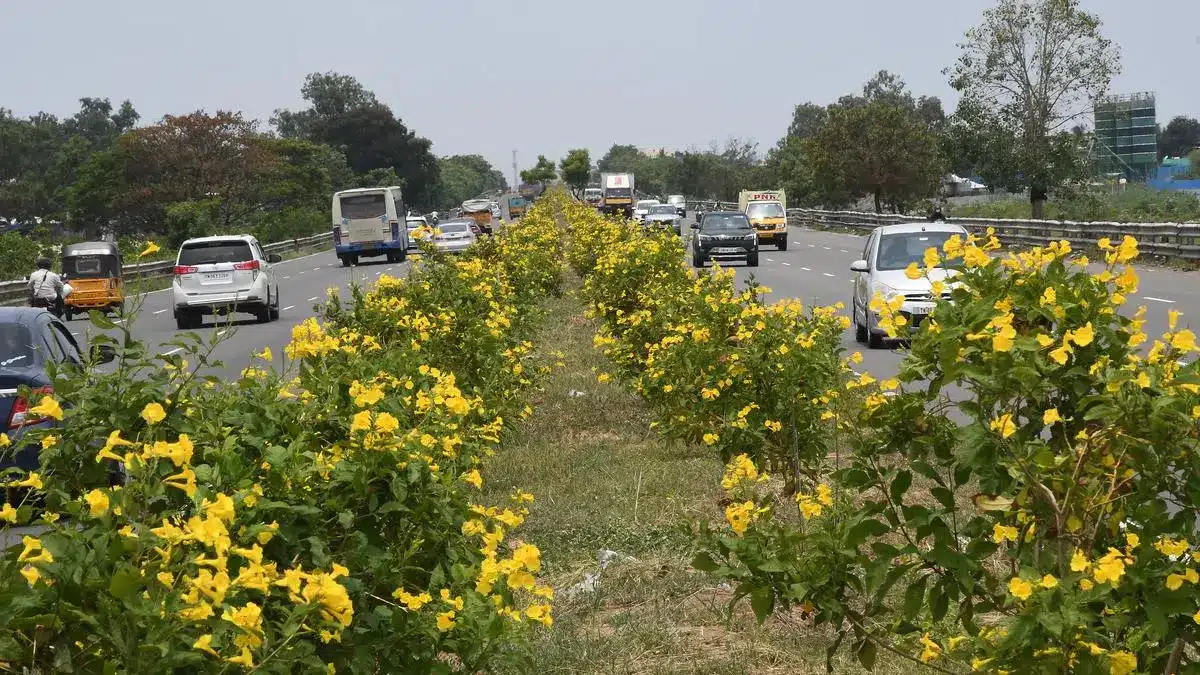What’s in today’s article?
- Why in News?
- What is Green Credit Programme (GCP)?
- Implementation of the GCP
- Greening projects approved under GCP
Why in News?
The Centre has approved 12 greening projects under the Green Credit Program (GCP) and estimates of 24 plans submitted by different state forest departments are under consideration.
This program, introduced last year, is a market-based mechanism. It aims to encourage voluntary environmental actions across various sectors.
What is Green Credit Programme (GCP)?
- Background
- Green Credit Initiative was launched by the Indian PM on the side-lines of COP 28 (held in 2023 at Expo City, Dubai, United Arab Emirates).
- It is an initiative within the government’s Lifestyle for Environment (LiFE) movement.
- The concept of LiFE was introduced by the Indian PM at COP26 (Glasgow) in 2021, to drive an international mass movement towards “mindful and deliberate utilisation” to protect and preserve the environment.
- About
- The GCP introduces a market-based approach to incentivise 8 identified environmental activities.
- The main objective was to establish a mechanism where participants could earn incentives in the form of ‘Green Credits’.
- It encourages voluntary environmental actions by individuals, organizations, and companies.
- Aim
- The GCP aims to promote sustainable lifestyles and environmental conservation.
- Its goal is to lay an emphasis on sustainability, reduce waste and improve the natural environment.
- Objectives
- To enhance India’s forest and tree cover.
- To Build an inventory of degraded land under the control and management of Forest Departments suitable for plantation.
- To encourage participation of individuals and entities in pro-planet actions by rewarding Green Credits.
- Implementing agency
- The Indian Council of Forestry Research and Education (ICFRE) is responsible for administering the GCP.
- Sectors targeted
- The proposed GCP will be implemented in phases, with the initial phase focusing on water management and afforestation.
- Subsequent phases will cover activities such as
- Sustainable agriculture,
- Waste management,
- Air pollution reduction,
- Mangrove conservation and restoration,
- Eco mark label development, and
- Sustainable building and infrastructure.
- Compensatory Afforestation and GCP
- The GCP allows for the exchange of credits to meet compensatory afforestation (CA) requirements.
- Under CA, industries and government agencies are legally mandated to plant trees on non-forest land equal to the size of forests they cut down.
- The GCP allows for the exchange of credits to meet compensatory afforestation (CA) requirements.
Implementation of the GCP:
- Individuals and companies can apply to the Indian Council of Forestry Research and Education (ICFRE) – an autonomous body of the MoEFCC, to pay to restore these forests.
- The actual afforestation will be carried out by State Forest departments.
- Two years after planting and following an evaluation by the ICFRE, each such planted tree could be worth one ‘green credit.’
- These credits can be claimed by the financing organisation and used in two ways:
- Either using it to comply with existing forest laws that require organisations, which divert forest land for non-forestry purposes, to recompense by providing an equivalent amount of land elsewhere.
- Or be used for reporting under environmental, social and governance leadership norms or to meet corporate social responsibility requirements.
Greening projects approved under GCP
- Approval to 12 projects while 24 others are under consideration
- The Centre has approved 12 greening projects under the GCP.
- Estimates of 24 plans submitted by different state forest departments are under consideration.
- PSUs being pushed to take a lead
- The government has been pushing the public-sector undertakings (PSUs) to take a lead in registering for the programme, especially in mining heavy states.
- Guidelines for third-party verification
- The govt is developing guidelines for third-party verification of projects under the scheme.
- Implementation so far
- So far, forest departments of 13 States have offered 387 land parcels of degraded forest land – worth nearly 10,983 hectares.
- Those interested in undertaking plantations have to first register on a government portal and the state departments then identify plots.
- A plantation plan and cost estimate are submitted to ICFRE, which clears final proposal.
- Initial focus is on states such as Chhattisgarh, Madhya Pradesh and Odisha, where large forested areas have been diverted for mining.
- So far, forest departments of 13 States have offered 387 land parcels of degraded forest land – worth nearly 10,983 hectares.
Q.1. What is Compensatory afforestation (CA)?
Compensatory afforestation (CA) is the process of replacing forest land that has been diverted for non-forest purposes with an equivalent area of non-forest land. The Forest (Conservation) Act of 1980 requires CA when forest land is diverted for residential, commercial, mining, or industrial purposes.
Q.2. What is the lifestyle for environment model?
This initiative encourages a lifestyle that focuses on mindful and deliberate utilization of resources and aims to change the present ‘use and dispose of’ consumption habits. The idea behind is to encourage individuals to adopt simple changes in their daily life that can contribute to climate change.
Source: Green credits: Govt nod to 12 projects, 24 under consideration | MOEFCC | PIB | The Hindu
Last updated on June, 2025
→ UPSC Notification 2025 was released on 22nd January 2025.
→ UPSC Prelims Result 2025 is out now for the CSE held on 25 May 2025.
→ UPSC Prelims Question Paper 2025 and Unofficial Prelims Answer Key 2025 are available now.
→ UPSC Calendar 2026 is released on 15th May, 2025.
→ The UPSC Vacancy 2025 were released 1129, out of which 979 were for UPSC CSE and remaining 150 are for UPSC IFoS.
→ UPSC Mains 2025 will be conducted on 22nd August 2025.
→ UPSC Prelims 2026 will be conducted on 24th May, 2026 & UPSC Mains 2026 will be conducted on 21st August 2026.
→ The UPSC Selection Process is of 3 stages-Prelims, Mains and Interview.
→ UPSC Result 2024 is released with latest UPSC Marksheet 2024. Check Now!
→ UPSC Toppers List 2024 is released now. Shakti Dubey is UPSC AIR 1 2024 Topper.
→ Also check Best IAS Coaching in Delhi























